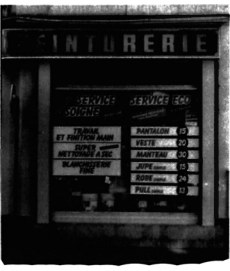13.2: When / Where / How / Why...?
- Page ID
- 142349
Questions et Réponses
B. When / Where / How / Why...?
- —Quand faites-vous vos devoirs?
- —Je fais mes devoirs quand je veux les faire.
- —Quand iront-ils en France?
- —Ils iront en France l'année prochaine.
- —Quand avez-vous vu Marie?
- —Je l'ai vue hier.
- —Où vas-tu?
- —Je rentre.
- —Où fera-t-il ses devoirs?
- —Il les fera chez lui.
- —Où a-t-elle fait ses devoirs?
- —Elle les a faits chez elle.
- —Comment vas-tu?
- —Je vais bien.
- —Comment irez-vous en Europe?
- —Je prendrai l'avion.
- —Comment avez-vous appris le français?
- —J'ai travaillé, ... beaucoup.
- —Pourquoi dormez-vous en classe?
- —Parce que je n'aime pas ce cours.
- —Pourquoi est-ce qu'il aura un F dans ce cours?
- —Parce qu'il dort toujours en classe.
- —Pourquoi m'as-tu aidé?
- —Parce que je t'aime.


Grammar Notes: All these interrogative adverbs (except pourquoi) have been introduced before in Questions et réponses exercises and all have been used frequently in dictations and other exercises. Now we ask you to use them productively and suggest you read (or reread) Reference Grammar, 16.6.
Exercice II
Come to class prepared with eight questions to ask your fellow students or your instructor, using the interrogative adverbs: quand, où, comment, and pourquoi. Ask questions you really want the answer to, and/or questions that are imaginative and amusing. Use all four adverbs. At least one question should be in reference to future time.
SERVIR, to serve (impersonal construction)
| Je sers le poisson? | Shall I serve the fish? |
| Tu sers le thé. | You serve the tea. |
| Un stylo sert à écrire. | A pen is used for writing. |
| Nous servons notre pays. | We serve our country. |
| Vous servez le dessert. | You serve the dessert. |
| Ils ne servent à rien. | They're not useful for anything. |
| Passé composé: j'ai servi, ... | |
| Imparfait: je servais, ... | |
| Futur: je servirai, ... | Futur proche: je vais servir, ... |

Réponses Rapides
C. Drill on disjunctive pronouns
- Je l'ai trouvé chez toi. (lui, elle, vous, eux)
- Passez devant moi. (lui, elles, elle, nous)
- Tu peux compter sur lui. (moi, elle, nous, eux)
- On va partir sans eux. (vous, elle, lui, toi)
Grammar Notes: The "tonic" or "stressed" or "disjunctive" pronouns you just drilled on are all fairly familiar forms. The forms are listed for you, with a statement of their functions, in the Reference Grammar, 1.2. They are most commonly found, as in the drill, as the objects of prepositions, but they can also stand alone or be used in a compound subject construction.

